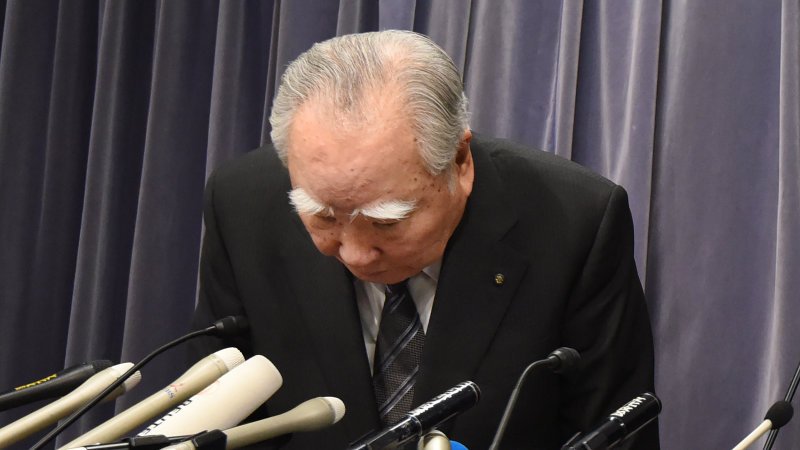Suzuki Latest To Admit To Falsifying Fuel Economy Tests

"The company apologizes for the fact that we did not follow rules set by the country," said CEO Osamu Suzuki (pictured bowing to reporters), as reported by Reuters. Over 2 million Suzuki vehicles are estimated to be affected. However Suzuki maintains that the company did not intentionally lie or mislead the public or government regulators about its vehicles' economy figures. Japan's transport ministry has ordered domestic automakers to resubmit those figures this week.
Though Suzuki withdrew from the North American automobile market nearly four years ago, it remains the fourth largest in Japan (following Toyota, Nissan, and Honda) with particular sales strength in the Kei car segment. Like Honda and Yamaha, the company makes a variety of motorized products, including motorcycles, ATVs, and marine engines.
The revelation follows hot on the heels of Mitsubishi's falsification, which broadened in scope from a few Kei cars to every vehicle it has sold in Japan stretching as far back as 1991. The controversy lead to Nissan taking control of a third of Mitsubishi's stock. Prior to that, and on the other side of the world, Volkswagen admitted to engineering its diesel vehicles to cheat emissions tests. Government regulators around the world have launched investigations into numerous other automakers to see how much farther the growing epidemic of falsifying environmental credentials can spread.
